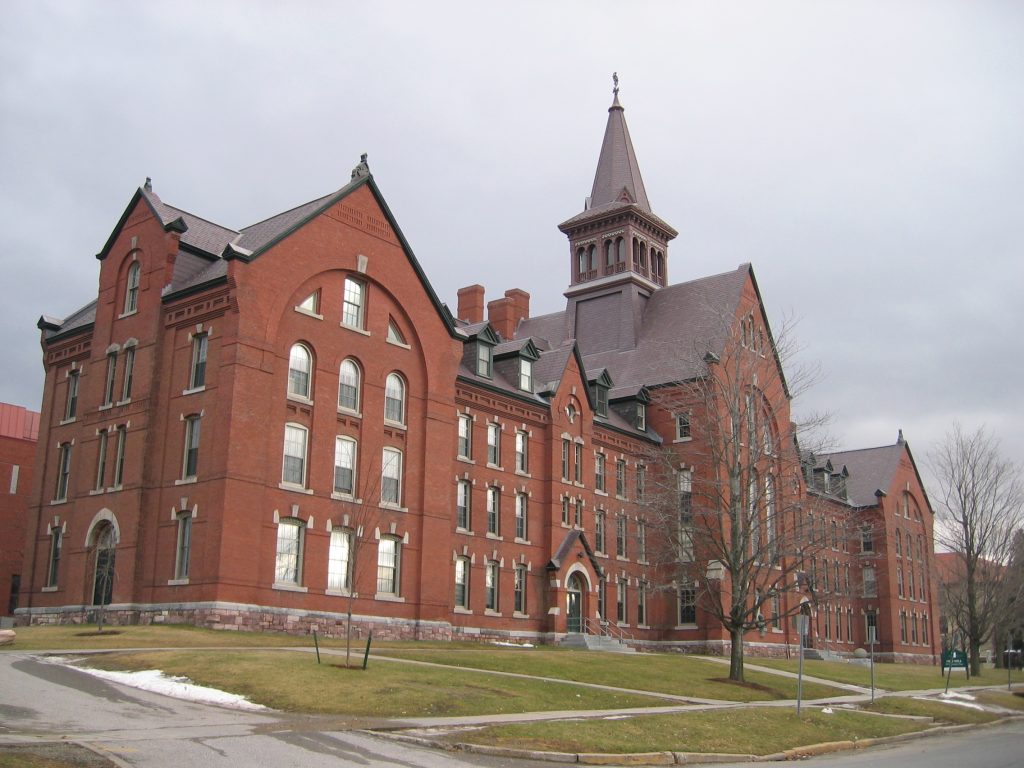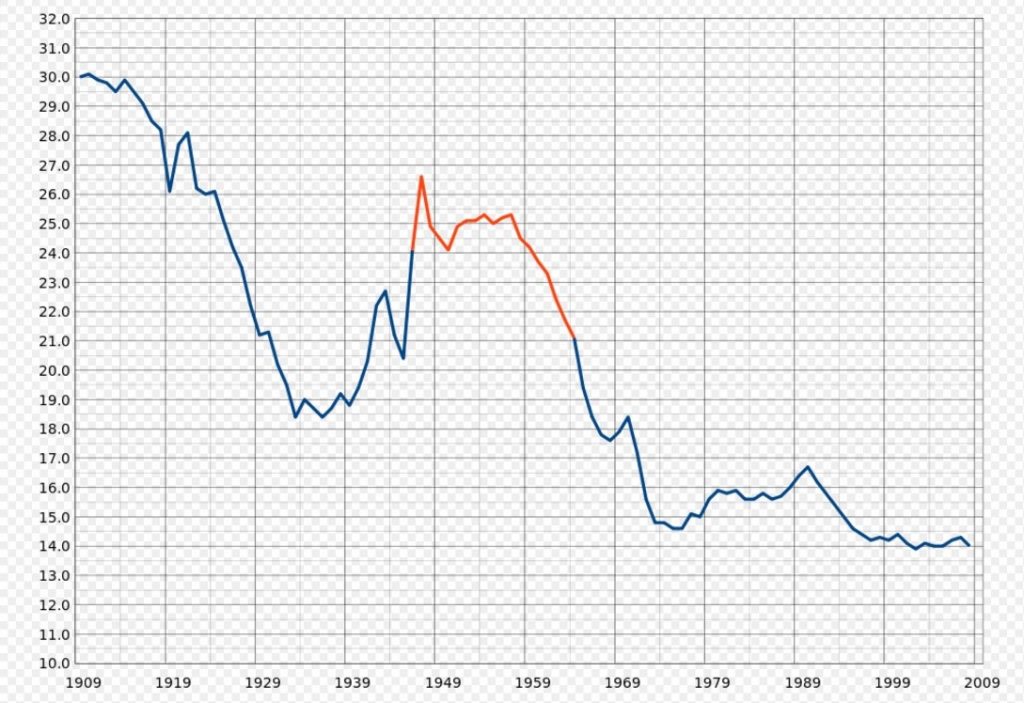EXCLUSIVE INTERVIEW Professor Stephen Cutler, Vermont University: “I think Trump is going to be a one term president”
Vermont University sociology professor Stephen Cutler sat down for a talk with EvoNews about education, health, opportunities and current social unrest in the United States. In terms of education, professor Cutler says that more people in the US have access to higher education than ever before and healthcare is better than it has ever been since Obamacare, but he is concerned about what the future will bring if some of Trumps more controversial proposals come into effect.
Stephen Cutler grew up in Massachusetts in a place where people didn’t have a lot of opportunities, but he was one of the few who decided to try for something more than what his corner of the world had to offer. The only way to do that was through education and determination.
“I don’t think we really had a lot of opportunities, we had a lovely childhood, we played a lot of sports, but perhaps the best way to describe it is that of my graduating high school class there were over 600 people graduating, two of us went to what might be called Ivy League colleges, I went to Dartmouth, someone else went to Brown University. I think 4 or 5 people went to some of the state teacher’s colleges and a couple of people made it into the University of Massachusetts, but no more than 25 or 30 people out of a graduating class of 600 went on to college. It was not something many of us did”, he recalled.
The situation in America isn’t quite the same today, as more people have access to higher education than ever before. Cutler estimates that about 50% of high school graduates make it to university across the US today. However, fees can be extraordinarily high, especially in Ivy League private universities like Harvard, Stanford, Yale.

“It depends on where you go, some of the costs for tuition are very high, for example, where I teach, at the University of Vermont, the costs are quite high, because the legislature didn’t give very much money to the university, so it had to get funds some other way. One of the ways is charging high tuition. But there are colleges in the US that don’t cost as much like the University of California, where campuses are relatively inexpensive, I think. There are some campuses in New York state and New York city that are relatively inexpensive, so it varies a little bit. Also, community colleges are relatively inexpensive. Of course, there are some universities that are terribly expensive like Harvard, Yale and Princeton, but those are private elite universities and colleges”, he explained.
In his case, he went to college to become a physics major, pre-engineer, because back in the 1960’s there was a great demand for scientists to get into the space race and technological advancement. “I answered the call of my country you could say, but that probably lasted as long as my first physics course. I failed it”, he remembers a little amused. Cutler decided he had to work very hard to catch up with the other students, so he would study without a break 13 out of 14 days straight. The change happened in his second year, when he took a sociology course. Like with many students, at first he didn’t know exactly what was best suited his abilities, but sociology “just made sense, it clicked”, he says.
“The person who was teaching the course was a young instructor at Dartmouth College, he had just come. He was versed in quantity approaches in the study of sociology and those were things that I liked. I spent hours calculating things, analyzing survey data, looking for relationships among variables. Doing quantity with large samples, that’s really what attracted me”, he explains.
He started doing his own research in graduate school and what really interested him was the participation of people in voluntary associations. “When I was in college, I did a study on whether voluntary participation had any benefits for people and found out that it wasn’t the participation that led to positive outcomes, it was rather the characters of the people who belonged to associations. People who belong to associations are more likely to score higher on psychological well being, but then you have to realize that people who belong to voluntary associations are different than those who don’t. One of the ways that distinguishes them is their education. So people who have higher levels of education tend to belong to associations and also tend to have higher levels of psychological well being”, he explained. Bottom line is, if you do good things, you feel good.
Studying the sociology of aging
Today he researches the sociological aspects of aging, how does an aging population affect society. „I’m more of a social gerontologist”. It all started when he was a student and a professor said that sociologists haven’t really studied the social impact of an aging baby boom population. After that, he devoted his research to this. “The baby boom cohort lasted about 18 years, from 1946 – 1964. That cohort goes through the age structure so you have baby boom kids facing the education system, then young people facing the job occupation system, housing problems, and so on. Eventually the cohort gets old and you are faced with twice as many people facing retiring and aging health problems”, Cutler explains.

Professor Cutler studied aging populations around the world, most especially in Romania, where a baby boom was artificially made when the Communist government banned abortion in the 60’s. The result was devastating, thousands of women lost their lives, doctors were imprisoned for doing illegal abortions and thousands of unwanted children were born and left in the care of the state, placed in orphanages where they were miserably treated and their development was severely affected. „The baby boom in Romania created all sorts of problems, the situation was unusual, very dramatic”, he says.
“I think Trump is going to be a one term president”
In terms of politics, Cutler says that in the election of Donald Trump as President, we can observe that certain parts of the United States “are really defected with the changes that have been occurring”.
“Trump ran on a platform of dismantling all of the things that Obama did in his eight years of presidency. He is pandering to the tastes of rich people and to some extent he is doing things that are antithetical to what people voted him for. For example, he wants to do away with Obamacare, the Affordable Healthcare Act,” Cutler explained.
Emergency rooms in hospitals take in any patient that is in critical need, but what Obamacare does is it insures that people can get access to healthcare that would prevent them from ending up in critical condition at an emergency room in hospital.
“I just can’t understand how the United States could be one of two countries in the world that didn’t have healthcare insurance for everybody, that it’s not considered a right. The US should say `we will insure everyone at whatever cost, because we consider it to be a right of all Americans`, this is why Obamacare is important and Republicans have been opposed to it for a long time,” he says.
Cutler thinks that as Trump’s presidency progresses, people are beginning to see that what he said he stands for isn’t really what he stands for. “I don’t think he will be reelected, I think he’s going to be a one term president because he has too many policies that are inconsistent with the needs of the people that voted for him and I think they will see that sooner or later. People are already talking about impeachment. Who knows? I think people will find out he’s unqualified”, he says.
When it comes to the refugee crisis, Cutler thinks the Western world should help more. “I just can’t imagine living in refugee camps, having to move from one place to another, taking boats across the water to make it to safety. It’s so far from my experience and I think we ought to try to offer people the same sort of opportunities and experiences that we’ve had”, says Cutler.
The idea that you shouldn’t let people into a city because there might be some with ill intentions among them is wrong, the sociology professor goes on to say. “People can do bad things whether they are refugees or native born Americans. You don’t stop welcoming people because you have a couple of rotten apples”, he says.